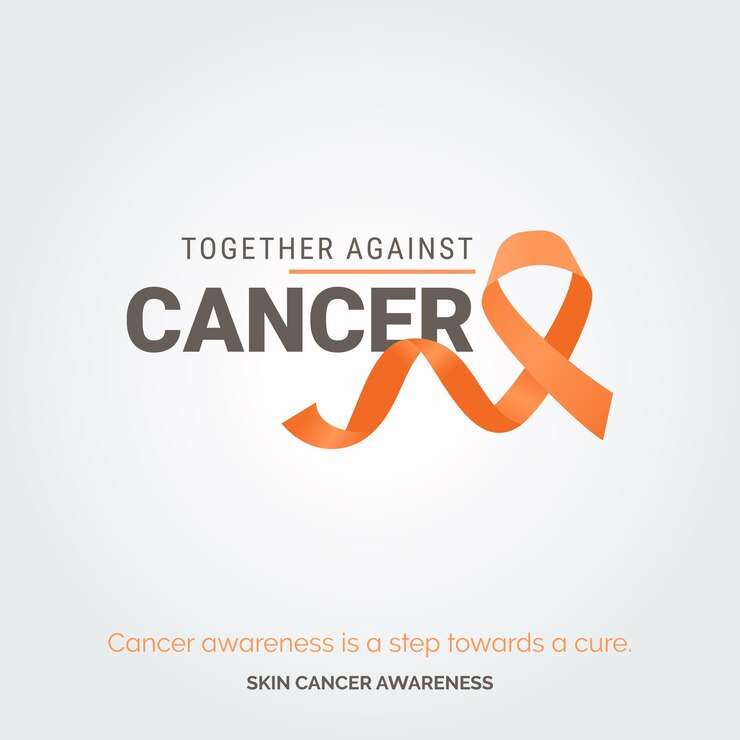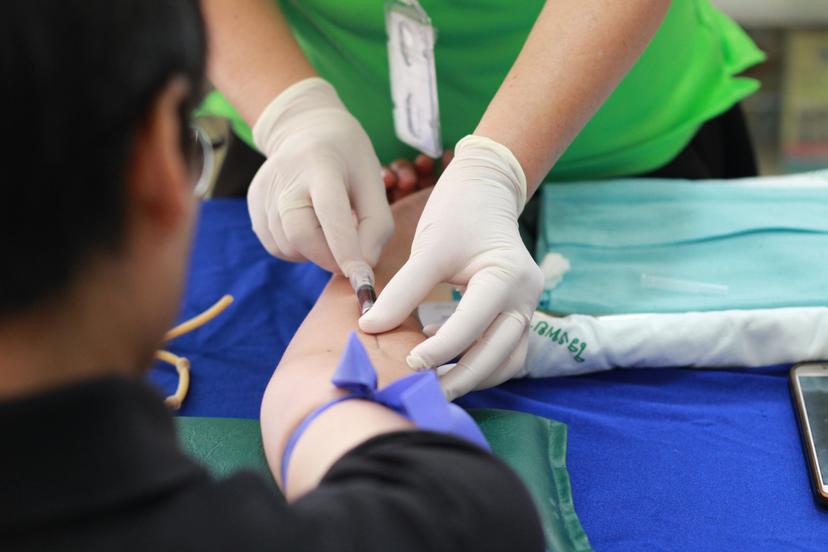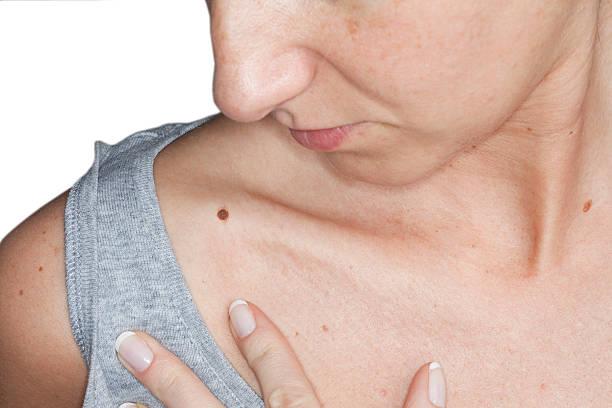
Understanding Skin Cancer Causes, the Link between Itchy Skin and Cancer
10 Apr, 2024
 Healthtrip Team
Healthtrip TeamDid you know that skin cancer happens to one of the most prevalent forms of cancer globally? Millions of cases are diagnosed each year. While factors such as UV exposure, genetics, and environmental influences play significant roles in the development of skin cancer, the manifestation of itchy skin can serve as an important indicator of underlying malignancy. Understanding the connection between itchy skin and skin cancer causes is essential for early detection, diagnosis, and treatment.
Recognizing Itchy Skin as a Symptom of Skin Cancer
The affliction ranges from mild to severe, with pruritus being the most common symptom associated with skin cancer and other types of cancer as well.
Most popular procedures in India
The itching that is sometimes present may occur spontaneously or as a reaction to a trigger, such as change of temperature, stress, or exposure to irritants.
However, in the situation dealing with skin cancer, pruritus mostly follows from the relation between the cancer cells and the neighboring skin tissue, which leads to swelling, nerve stimulation, the release of pruritogenic agents as well as others.
Wellness Treatments
Give yourself the time to relax
Lowest Prices Guaranteed!

Lowest Prices Guaranteed!
Although not every case of itchy skin denotes skin cancer, any untreated and casual itching that lasts or is inexplicable warrants a prompt visit for further evaluation.
Understanding Skin Cancer Causes: Types That May Result in Itchy Skin
In most of the cancer types including melanoma, basal cell carcinoma, or squamous cell carcinoma, itching is often one of the main symptoms experienced by patients.
Of all the other types of skin cancer, melanoma, which is more deadly, is derived from melanocytes-pigment producing cells in the skin. In a patient who is already sick with the disease, melanoma may get inside the surrounding tissues and also along the nerve pathways, causing itchy skin as clustered or whole.
Although less aggressive than melanoma in most cases, basal cell carcinoma and squamous cell carcinoma may also cause itching, which particularly happens when tumors form and grow on the areas that contain sensitive nerve endings (such as face, neck, and genital region).
Understanding the Mechanism behind Itchy Skin in Skin Cancer
The mystery behind causing itchiness in the skin because of cancer is complex. Several factors, including interactions among cancer cells, immune system cells, and skin nerve endings, are not specific.
An unfortunate consequence of the cancer cell process is that it produces different inflammatory factors, cytokines, and growth factors capable of stimulation of sensory nerve endings through which this process causes itching sensations.
Also since tumors grow and invade adjacent healthy tissues, they can damage the skin structures and nerves pathways causing these tissues to get more irritated. Sometimes the immune response process of the body to a cancer cell can also cause itchiness by way off as inflammation and unleashing pruritogenic substances.
Other Possible Causes of Itchy Skin
People usually seek an explanation for the itching feeling that accompanies a skin cancer condition in other circumstances, and they subject themselves to idea of a relation with other triggers of pruritus. Those included dry skin, allergic reactions, insect bites, and skin inflammation among the other non-cancer causes of itching. Moreover, particular medications including opiate drugs, antibiotics, and chemotherapy agents can cause itchiness in some people. Non-specific diseases like these are also signs of liver disease, kidney failure and thyroid problems. The generalized feeling of itching can be a manifestation of these conditions. As a result, a thorough evaluation by a healthcare specialist should be the priority which helps determine the proper reason of the itching.
Recognizing When to Seek Medical Evaluation
A long history of itching especially when associated with other clinical features like mole changes, skin finding, and intentional weight loss, require medical examination. Besides examination, your doctor may need to know information about your history of disease and some personal information. An early detection and early intervention are vital to ensure optimal treatment of a diseases. People pursuing intermittent fasting should get a doctor's checkup if they are suffering from severe and even chronic itching. Further to that, those with a personal or familial history of skin cancer or the other malignancies are especially recommended to cautiously watch out for any changes on their skin surface and seek immediate medical help for those alarming changes.
Prevention and Early Detection of Skin Cancer
Aiming to prevent skin cancer and detect it early will serve a huge role in reducing morbidity and mortality which is related to this disease.
Sun protection strategies such as sunscreens, protective clothes, and taking shelter in shade during the hours of enhanced UV levels, can dramatically limit the possibility of UV-associated sun damage and therefore cancer development.
Frequent checkups of the skin by a person himself with doctor's appointment once a year will be helpful to detect skin cancer at an early stage. We encourage people to be familiar with the ABCDE mnemonics as well as be on the outlook for any concerning skin wounds and report them immediately to their doctor.
Moreover, in case you have a personal or family medical history of skin cancer, you must attend regular screening for follow ups and detection of new tumors or other abnormalities. The timely response to the disease when it is not yet developed or even before the signs or symptoms occur can help you avoid the use of more invasive treatments and consequently enhance the overall survival rate but also improve the quality of life.
Importance of Regular Skin Examinations
Let us reiterate, routinely performed skin checks can be an extremely valuable tool in early detection of skin cancer. Dermatologists, furthermore, advise people to undertake skin self-examination at least once every month to detect any changes on moles, skin lesions, or any other atypical ones.
By use of mirrors or asking close ones to help see behind the head, scalp and ears, patients can perform self-examinations easily at home. One needs to visit a health care provider who will conduct an immediate thorough evaluation on any new, changed or suspicious growth discovered. Besides doing monthly self-examinations, clinical annual examinations every year by a dermatologist are also recommended, particularly for individuals having high risk of skin cancer like those who have high sun exposure, with fairer skin tone or have a history of skin cancer.
Advances in Skin Cancer Detection and Treatment
Through each new breakthrough in technological and medical research, skin cancer has been much better detected and treated, in turn, enabling faster recovery. Nowadays, dermatologists have developed various diagnostic tools and methods, including ceroscopy, reflectance confocal microscopy, and molecular detection methods, to detect skin conditions with great accuracy and precision. In addition, advancement of treatment modalities such as Mohs micrographic surgery, targeted therapy, photodynamic therapy, and immunotherapy offers patients with better and, in most cases, less invasive treatment options. Thanks to all these advancements, patients can now enjoy improved outcomes and fewer side effects.
The Role of Sun Protection
Sunscreen still remains the principle of the prevention tool against skin cancer. Prolonged or repeated unprotected exposure to ultra violet (UV) rays from the sun is usually the main cause of skin cancer. Hence, practice sun-safe behaviors like using the SPF 30 or more powerful sunscreens that provide Broad spectrum protection against UV rays, , always look for shade during the hours that have the highest UV (noon to 4 p.m.), covering up the body parts with clothes (such as wide-brimmed hats and long-sleeved shirts), and avoid using indoor tanning devices. All these healthy practices can lower the risk of skin related cancers considerably. Remember, it is very important to observe sun protection all around the year. UV rays can pass through clouds and your skin health even on the days when you may think that there is not any harm since it is cloudy or overcast.
Empowering Individuals through Education and Awareness
Both education and awareness sets up the foundation of skin cancer prevention and early detection actions. Through the effort of promoting sun protection, conducting regular skin evaluations, and detecting warning signs of skin cancer, individuals can embrace preventive measures t for preserving their skin health and, in turn, reduce the risk of developing skin cancer.
Conclusion
In summary, recognizing itchy skin as a red flag is crucial for early detection and restoration of normalcy. This is a situation that reminds people that itching might be the possibility of the skin cancer symptom. Those who need evaluation for medical treatment can have a better chance for an early diagnosis and possible cure. Moreover, one should prioritize sun-protection, conducting regular self-skin-examinations and seeking medical attention. Putting in protective measures shielding the skin, keeping watch for any indications of cancer, enable people to maintain the health and wellness of their skins.
Related Blogs

Melanoma: Understanding the Risks and Prevention
A guide to understanding melanoma risks, prevention strategies, and early

The Unseen Enemy: The Rise of Squamous Cell Carcinoma
Squamous cell carcinoma is a type of cancer that affects

The Unrelenting Fight: The Battle Against Skin Cancer
Skin cancer is a type of cancer that affects the

Cutaneous T-Cell Lymphoma: The Skin Cancer
Cutaneous T-cell lymphoma is a type of cancer that affects

Basal Cell Carcinoma: The Most Common Skin Cancer
Basal cell carcinoma is the most common type of skin

Exploring the Three Main Skin Cancer Types
Skin cancer is a prevalent health concern worldwide, with its










